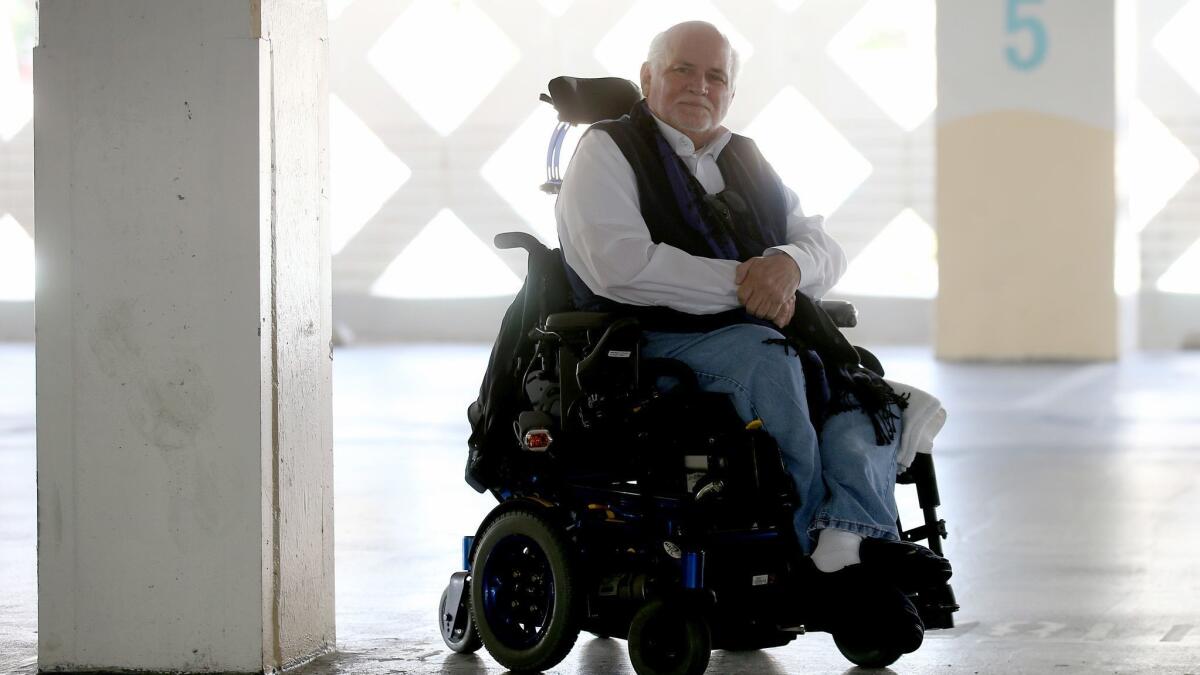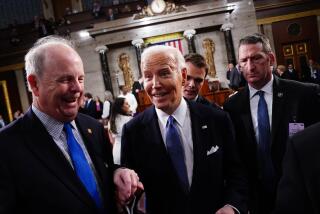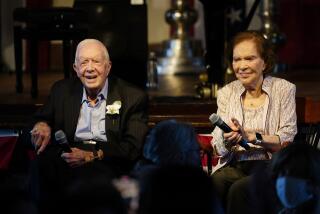Capitol Journal: George H.W. Bush’s least-discussed but longest-lasting legacy: The Americans with Disabilities Act

Badly wounded Vietnam War veteran Ron Kovic remembers vividly the awkward, dehumanizing times before President George H.W. Bush signed the landmark Americans with Disabilities Act.
Parking was far away. He had to use kitchen entrances at restaurants. He was forced to relieve himself where dogs did because human facilities couldn’t handle his wheelchair.
You may recall Kovic from the 1989 Academy Award-winning movie “Born on the Fourth of July.” It was based on his best-selling autobiography about being a Marine sergeant shot up in Vietnam on the eve of the 1968 Tet offensive, returning home paralyzed from the chest down and ultimately becoming an antiwar leader.
He was played by Tom Cruise, who was nominated for an Oscar and won a Golden Globe. Kovic and director Oliver Stone shared a Golden Globe for best screenplay. Stone won an Oscar for direction.
Kovic, 72, lives in Redondo Beach, where he continues to write and protest wars.
He strongly protested Bush’s 1990-91 Gulf War.
“War is horrible,” he told me. “There are times when we have to step forward” and fight. But the U.S. fights too often, he said. “I don’t want to see young men come home like me.”
“I didn’t always agree with President Bush,” Kovic says, “but I admired him because he risked his life in World War II, and I admired his compassion, his sensitivity for the disabled.
“He brought Democrats and Republicans together to pass bipartisan legislation that was much more important than people realize. It shattered barriers and opened up opportunities for the disabled community that never before existed.”
There were three reasons why Bush deserved to be reelected in 1992. But he was denied a second term by charming victor Bill Clinton and maverick Ross Perot, who siphoned votes from the Republican incumbent.
Those reasons: 1. Bush won the Gulf War in minimum time with minimum casualties, and wisely got out. 2. He bravely raised taxes when the nation’s treasury badly needed the revenue, casting aside his foolish “read my lips” campaign promise. 3. He signed the Americans with Disabilities Act.
That act improved the lives of an estimated 55 million people with disabilities, in ways that may not be fully comprehended by those who are not burdened every day with physical or mental challenges.
The ADA required handicapped parking places — not nearly enough, but at least some. It mandated ramps and curb cuts to accommodate wheelchairs and scooters. Public facilities, including buses, were made reasonably accessible. Job discrimination was outlawed.
Before then, Kovic says, “handicap parking was very rare.”
He drives a van with hand controls and a ramp that’s used to roll his chair in and out of the vehicle’s side. So he must park by an empty space.
“I’d have to drive way, way far back in a parking lot and wheel myself maybe a quarter mile,” he says.
Former President George H.W. Bush to be laid to rest today at his presidential library in Texas »
“Going to a restaurant, I’d go into a back alley — I can still smell it today — and go through the kitchen past the cooks, because the front door had steps. Then I’d have to find a table to get into with a wheelchair.…
“I couldn’t use the bathroom. I’d go back through the kitchen and down the alley, maybe find some grass. Join the puppy dogs out there.”
Bush’s signing of the ADA was not the kind of action many would expect from a Republican president. Powerful business interests opposed it as a financial burden.
“A lot of Republicans didn’t want him to do it because business didn’t want to mess with toilets and the size of doors going into restaurants,” says Sean Walsh, a Bush press aide who later became Gov. Pete Wilson’s chief spokesman. “There was a lot of rankle.”
But there was a strong influence from a politically connected disability rights activist, Justin Dart Jr., who contracted polio at 18 and spent the rest of his life in a wheelchair.
Dart had Texas connections close to Bush. More significant, Dart’s father, Southern California industrialist Justin Dart Sr., was a close friend of President Reagan, who chose Bush as his vice president. Dart Sr. was a member of Reagan’s original “kitchen cabinet” that drafted him to run for governor and helped bankroll his races.
Dart Jr. was a driving force behind the ADA and was listened to in the White House. Bush named him chairman of a key disability rights commission. And when Bush signed the ADA in 1990, he gave Dart the first pen.
Enforcement of the ADA has been too lax. Handicapped parking is routinely abused by physically fit people who illegally use their grandma’s placard to grab a spot closer to a ball game, concert or the mall. The California DMV has been trying to crack down.
There also have been nuisance suits by unscrupulous lawyers trying to cash in on minor violations. The state has moved to reduce those.
But Kovic says a positive change has been people’s attitudes.
“People relate to me differently,” he says. “They seem to be more compassionate. There’s a whole sense of dignity and acceptance and belonging…. We were non-people for decades, for centuries. This was a bright new day. There seemed to be something miraculous about the legislation.”
For my money, the ADA was Bush’s most long-lasting, life-changing act. And it’s usually mentioned only in passing.
Follow @LATimesSkelton on Twitter
More to Read
Get the L.A. Times Politics newsletter
Deeply reported insights into legislation, politics and policy from Sacramento, Washington and beyond. In your inbox three times per week.
You may occasionally receive promotional content from the Los Angeles Times.







